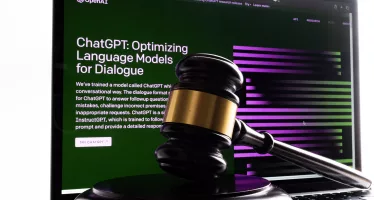Bitcoin: A Fatal Lapse of Memory
 Stephan Thomas is a rich man. Recently, the value of his assets ballooned to a staggering $260 million. There is, however, a hitch: Thomas owns 7,002 bitcoins but cannot access his digital wallet. He lost the password and after eight failed attempts has only two tries left before the digital vault holding his treasure – and his private keys – gets encrypted, destroying its contents forever.
Stephan Thomas is a rich man. Recently, the value of his assets ballooned to a staggering $260 million. There is, however, a hitch: Thomas owns 7,002 bitcoins but cannot access his digital wallet. He lost the password and after eight failed attempts has only two tries left before the digital vault holding his treasure – and his private keys – gets encrypted, destroying its contents forever.
The plight of Thomas, a German-born computer programmer, has sparked a gold rush of sorts amongst security experts who claim they can recover the lost passwords by finding a side-channel. This requires the deployment of raw computing power over a period of six to eight months and may cost the hapless German up to 10% of his bitcoin stash.
Thomas is not the only cashless bitcoin millionaire. According to Chainalysis, a company providing blockchain analytical services, a fifth of the approximately 18.5 million bitcoins mined so far have been lost with most of the missing bits stranded in locked wallets. In 2013, an unfortunate Welsh IT technician binned a hard drive containing the keys to 7.500 bitcoins now valued at well over $280 million. The total value of lost or inaccessible bitcoins amounts to almost $140 billion.
In the early days of cryptocurrency, about a decade ago, bitcoins were traded for as little as two dollars. Use of the novelty currency was mostly limited to techies and digital anarchists. Suffering wild swings in value as bitcoin trading platforms and exchanges boomed and bust, the virtual currency steadily settled at a rate of $5,000 early last year before breaching the $40,000 mark in early January. It has since dropped 17% for no apparent reason. The dynamics of bitcoin and other cryptocurrencies, regulated only by their built-in algorithm, are impervious to established market triggers and are largely determined by deals taking place outside the public realm.
The recent boom in prices is feeding the concerns of regulators in the US, UK, and Europe. President Christine Lagarde of the European Central Bank (ECB) called for stronger oversight and scrutiny of cryptocurrencies considering their extreme volatility. Lagarde is also worried about the criminal activity associated with crypto assets such as money laundering and the trade in illicit goods and services. Lagarde called bitcoin a ‘highly speculative asset’ which has conducted some ‘funny business’.
The UK’s Financial Conduct Authority (FCA) earlier this week expressed concerns over unauthorised investment schemes and warned consumers that they have no recourse to regulators should their bets fail to pay off. The FCA is particularly worried about possibly false advertising claims being made and the increased interest of investors seeking to diversify their holdings by moving into the cryptocurrency space.
Lagarde is more concerned about criminal activity and pointed to a number of ongoing police investigations, including one uncovering the online trading platform DarkMarket used by about 2,400 vendors to sell illegal drugs. Europol arrested a 34-year-old Australian allegedly in charge of the dismantled marketplace and seized twenty servers in Moldova and Ukraine. A preliminary scan of these computers has revealed trades worth in excess of €140 million.
Bitcoin’s trajectory is not that distinct from that of the wider equity market which barrels ahead notwithstanding the near-global economic malaise brought on by the Corona Pandemic. The disconnect between events ‘on the ground’ and the buoyancy of bitcoin and more traditional asset classes may have different reasons, but the outcome is similar. However, as an asset, bitcoin has one defining characteristic that sets it apart from all other assets: It is a virtual asset or, if you will, a figment of our collective imagination – one, moreover, running rather wild. It, essentially, does not exist other than as a long series of digits, the blockchain, confined to a hard drive. As Thomas found out to his possibly everlasting detriment, bitcoins may be locked away at any time by something as mundane as a lapse of memory. No other investment class is so fickle.
You may have an interest in also reading…
Few Strings in US, Many in Europe
As trillions of dollars and euros were being doled out in state aid by governments and central banks trying to
Many a Titter about Twitter as Musk Bungles his Big Purchase
Dust off your shovels! Elon Musk has bought himself into a $44bn hole, and you’re expected to dig him out
Judges Approve use of ChatGPT in Legal Rulings, Despite Its Tendency to Fib — and ‘Invent’ False Cases
Fallible AI gets the go-ahead in Britain to summarise lengthy texts and perform ‘administrative’ court tasks. UK judges will be


















































































